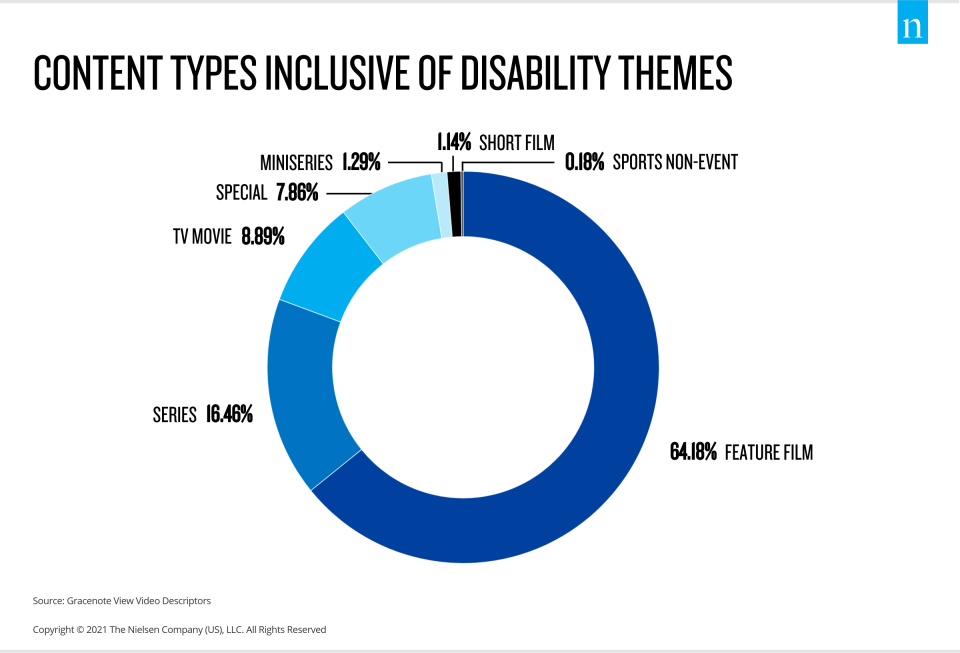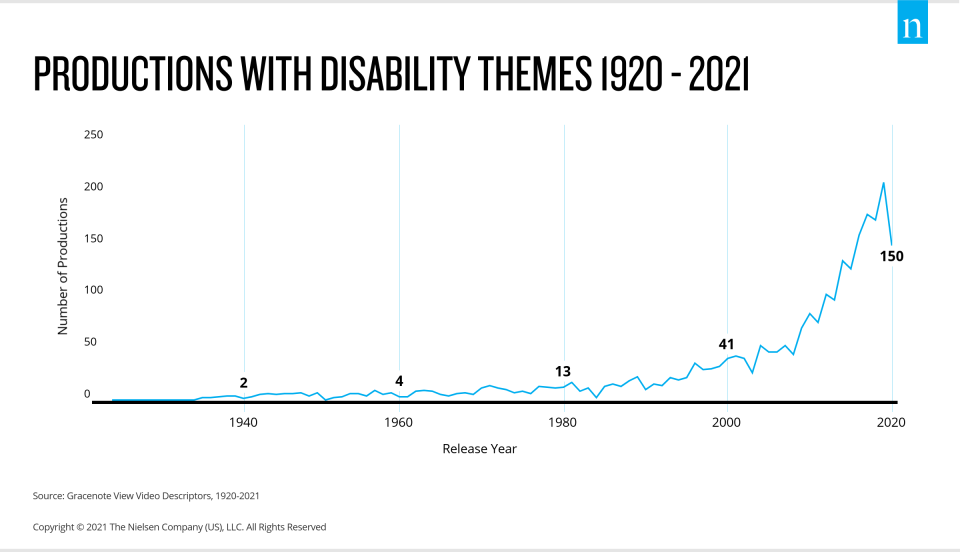TV Lags Far Behind Film in Disability Representation, Nielsen/RespectAbility Study Reveals (EXCLUSIVE)

Television still falls far behind film in depicting characters with disabilities, according to a new study released on Wednesday by Nielsen and the nonprofit org RespectAbility. As an encouraging sign, the report found that content featuring depictions of disability rose more than 175% over the past decade — but that the majority of those roles were played by performers without those disabilities.
Timed to the 31st anniversary of the Americans With Disabilities Act, Nielsen and RespectAbility have partnered on a three-part series of reports, “Visibility of Disability.” The initial study, out today, evaluated 3,000 titles and found that around 65% of depictions of disability came via films. Just 16% came from regular series, with the balance seen in TV movies, limited series or specials.
More from Variety
Netflix's Reed Hastings Wants to See HBO Max on Nielsen's Streaming Leaderboard
Nielsen Likely Undercounted Some Pandemic Audiences, Media Review Finds

A survey attached to the study also found that audiences with disabilities more often found problems with those portrayals. Specifically, the survey found that people with a disability are 8% more likely than people without a disability to say TV portrayal is inaccurate, and 7% more likely than people without a disability to say there is not enough content featuring people from their identity group.
Nielsen and RespectAbility notes that the number of adults living with a physical or psychological disability in the U.S. is about 26% of the U.S. adult population. The number of productions with disability themes has indeed risen, according to Nielsen’s Gracenote Video Desrcriptors database, which found 150 projects in 2020 — compared to 41 in 2000. The data also found that narratives relating to the real-life experiences of disabled individuals focused the most on family and relationships, followed by female leads, love and inspirational content.

But RespectAbility, which focuses on promoting more accurate and diverse portrayals of people with disabilities, says the industry still has much work to do.
“Even though the number of disabled characters on screen continues to increase in recent seasons, the majority of available roles, an estimated 95 percent, are portrayed by talent without a disability,” said Lauren Appelbaum, vice president, communications and entertainment & news media, RespectAbility. “When disability is a part of a character’s story, too often content can position people with disabilities as someone to pity or someone to cure, instead of portraying disabled individuals as full members of our society.”
Go here to read the full report. The next two reports, set to publish in August, will cover representation of disability in ads and findings from a survey about disabled audiences and their media perceptions.
“The entertainment industry has the power to change the narrative of inclusivity through more accurate depictions of visible and nonvisible disabilities,” said Stacie de Armas, Nielsen’s senior VP, diverse insights and initiatives. “Our data can illuminate the opportunities to close this representation gap and shine a light on those who are highlighting disability in content authentically.”
Best of Variety
Best Gifts, Shoes, Games and Merch to Celebrate 2021 NBA Playoffs
The Most Unique Chess Sets For Every Type of Pop Culture Junkie
From 'Green Knight' to 'Dune': 29 Books Being Made Into Movies and TV Series That You Should Read
Sign up for Variety’s Newsletter. For the latest news, follow us on Facebook, Twitter, and Instagram.

 Yahoo Finance
Yahoo Finance 